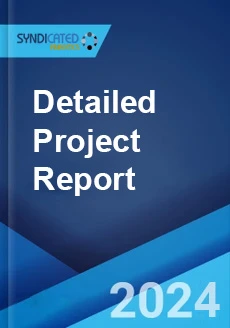
Monoclonal Antibodies Market - Global Industry Analysis, Market Size, Share, Trends, Application Analysis, Growth and Forecast, 2022-2027
“Global Monoclonal Antibodies Market - Global Industry Analysis, Market Size, Share, Trends, Application Analysis, Growth and Forecast, 2022-2027” provides a deep and thorough evaluation of the global monoclonal antibodies market. Cancer monoclonal antibodies refer to laboratory-generated molecules engineered to mimic the attack of the immune system on cancerous cells. It can get attached to antigens present on the surface of cancer cells and trigger the destruction of cell membranes, block cell growth, and immune system inhibitors. The rising prevalence of cancer across the globe represents one of the key drivers for the cancer monoclonal antibody market. Furthermore, the growing shift from non-targeted therapies, such as chemotherapy, towards monoclonal antibodies for reducing the adverse health impacts on patient’s bodies will continue to drive market growth in the coming years.
Beginning with a global overview, the report explores the dynamics that have a strong influence on the monoclonal antibodies market and can also impact its future growth. Taking 2021 as the base year, the report covers the historical market scenario from 2016-2021 and provides forecasts till 2027. This includes the study of value and volume trends and pricing history. Growth-inducing factors, market restraints, and recent developments have also been analyzed in the report in order to provide deeper knowledge about the industry. On a regional basis, the report examines the monoclonal antibodies market in North America, Europe, Asia-Pacific, Latin America, and Middle East & Africa. For each of these regions, the report studies the monoclonal antibodies market in detail for the latest trends, outlook, and opportunities.
The report analyses the competitive structure of the monoclonal antibodies industry and provides the profiles of major players operating in the market. The price margins for the products, along with the various success and risk factors for manufacturers, have also been covered in the report. Moreover, in order to determine market attractiveness, the report analyses the monoclonal antibodies industry along with the parameters of Porter’s Five Forces model. This model examines the degree of competition in the monoclonal antibodies industry by analyzing the threat posed by new entrants and substitutes and the bargaining power of suppliers and buyers. SWOT analysis of the market has also been presented in the report, which highlights the strengths, weaknesses, opportunities, and threats pertaining to the digital marketing spending industry. Furthermore, the value chain analysis of the monoclonal antibodies industry has also been covered in the report. This comprises all the activities in the value chain, such as the procurement of various raw materials, manufacturing, sales, and distribution.
Key Segments and Highlights of the Global Monoclonal Antibodies Market
- Historical and current scenario
- Trends and developments
- Impact of COVID-19
- Market forecast
- Price analysis and forecast
- Porter’s five forces analysis
- SWOT analysis
- Value chain analysis
- Market Breakup by Type
- Market Breakup by End-Use
- Market Breakup by Region
- North America
- Europe
- Asia-Pacific
- Latin America
- Middle East & Africa
- Key players
The report is a result of exhaustive primary and secondary research undertaken by analysts having years of experience in the monoclonal antibodies industry. All the qualitative and quantitative aspects of the industry have been covered and the collected data has been analyzed and presented in the form of easily comprehensible charts, graphs, and tables.
Purchase Options
Ask For Customization
Personalize this research
Triangulate with your own data
Get data as per your format and definition
Gain a deeper dive on a specific application, geography, customer or competitor
Any level of personalization
Get in Touch
Call us on
US: +1-213-316-7435
Uk: +44-20-8040-3201
Drop us an email at
sales@syndicatedanalytics.com